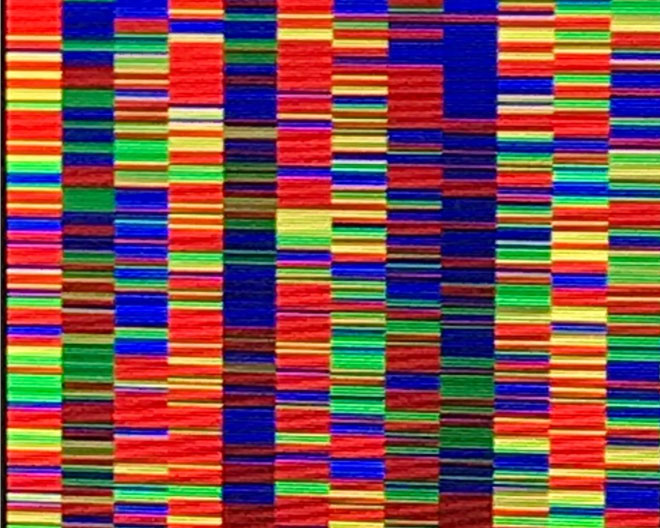
Metabolic risk factors at the genetic level
Metabolic risk factors, such as arterial hypertension, obesity, diabetes mellitus type 2 or glucose intolerance as well as disorders of lipid metabolism are multifactorial polygenic diseases that can occur cumulatively in an individual. The link for this clinical clustering of risk factors lies on the genetic level, whereby the pathogenesis of such multifactorial diseases is directly influenced by multiple environmental factors, called “lifestyle”, depending on the individual genetic predisposition. Genetics and lifestyle interaction can be caused by changes in short-, medium- and long-term gene regulation in direct response to a physiological stimulus in the sense of physiological memory or even “physiological inheritance”.
The integration of the data of a phenotype with the underlying genotype and its specific reaction to environmental influences is regarded as systems biology and is an essential content of translational medicine. It is not yet clear whether the numerous relevant gene loci have the same meaning or whether there are dominant gene loci. An established approach in polygenic multifactorial diseases is to characterize defects of identified signaling disorders in genetically defined patients and then to define the role of these newly identified gene loci in common manifestations.
The main focus of the research group is to investigate complex molecular processes in the development and progression of polygenic diseases as well as their alteration by environmental influences and to use genetic analyses as part of the research project. Besides the investigation of known target genes, the identification and subsequent validation of new candidate genes associated with e.g. arterial hypertension, obesity, diabetes mellitus type 2 or glucose intolerance and disorders of lipid metabolism is an essential part of the research.
Aims of research
- To investigate complex molecular processes in the development and progression of polygenic diseases and their alteration by environmental influences and to make genetic analyses available as part of the research project
- Investigation of known target genes and identification and subsequent validation of new candidate genes associated with e.g. arterial hypertension, obesity, diabetes mellitus type 2 or glucose intolerance and disorders of lipid metabolism
- The working group also provides support in the field of DNA (sequencing, genotyping) and expression analysis (transcriptome analysis, methylation)
Team
Selected Publications
- Nikolic A, Fahlbusch P, Riffelmann N-K, Wahlers N, Jacob S, Hartwig S, Kettel U, Schiller M, Dille M, Al-Hasani H, Kotzka J, Knebel B 2024. Chronic stress alters hepatic metabolism and thermodynamic respiratory efficiency affecting epigenetics in C57BL/6 mice. iScience. 27. https://doi.org/10.1016/j.isci.2024.109276
- Nikolic A, Fahlbusch P, Wahlers N, Riffelmann N-K, Jacob S, Hartwig S, Kettel U, Dille M, Al-Hasani H, Kotzka J, Knebel B 2023. Chronic stress targets mitochondrial respiratory efficiency in the skeletal muscle of C57BL/6 mice. Cell Mol Life Sci. 80. https://doi.org/10.1007/s00018-023-04761-4
- Fahlbusch P, Nikolic A, Hartwig S, Jacob S, Kettel U, Köllmer C, Al-Hasani H, Lehr S, Müller-Wieland D, Knebel B, Kotzka J 2022. Adaptation of Oxidative Phosphorylation Machinery Compensates for Hepatic Lipotoxicity in Early Stages of MAFLD. Int J Mol Sci. 23. https://doi.org/10.3390/ijms23126873
- Dille M, Nikolic A, Wahlers N, Fahlbusch P, Jacob S, Hartwig S, Lehr S, Kabra D, Klymenko O, Al-Hasani H, Kotzka J, Knebel B 2022. Long-term adjustment of hepatic lipid metabolism after chronic stress and the role of FGF21. BBA Molecular Basis of Disease. 1868. https://doi.org/10.1016/j.bbadis.2021.166286
- Fahlbusch P, Knebel B, Hörbelt T, Barbosa DM, Nikolic A, Jacob S, Al-Hasani H, Van de Velde F, Van Nieuwenhove Y, Müller-Wieland D, Lapauw B, Ouwens DM, Kotzka J 2020. Physiological Disturbance in Fatty Liver Energy Metabolism Converges on IGFBP2 Abundance and Regulation in Mice and Men. Int J Mol Sci. 21. https://doi.org/10.3390/ijms21114144
- Barbosa DM, Fahlbusch P, Herzfeld de Wiza D, Jacob S, Kettel U, Al-Hasani H, Krüger M, Ouwens DM, Hartwig S, Lehr S, Kotzka J, Knebel B 2020. Rhein, a novel Histone Deacetylase (HDAC) inhibitor with antifibrotic potency in human myocardial fibrosis. Sci Rep. 10. https://doi.org/10.1038/s41598-020-61886-3
- Hörbelt T, Knebel B, Fahlbusch P, Barbosa D, de Wiza DH, Van de Velde F, Van Nieuwenhove Y, Lapauw B, Thoresen GH, Al-Hasani H, Müller-Wieland D, Ouwens DM, Kotzka J 2019. The adipokine sFRP4 induces insulin resistance and lipogenesis in the liver. BBA Molecular Basis of Disease. 1865: 2671-2684. https://doi.org/10.1016/j.bbadis.2019.07.008
- Knebel B, Fahlbusch P, Poschmann G, Dille M, Wahlers N, Stühler K, Hartwig S, Lehr S, Schiller M, Jacob S, Kettel U, Müller-Wieland D, Kotzka J 2019. Adipokinome Signatures in Obese Mouse Models Reflect Adipose Tissue Health and Are Associated with Serum Lipid Composition. Int J Mol Sci. 20. https://doi.org/10.3390/ijms20102559
- Knebel B, Fahlbusch P, Dille M, Wahlers N, Hartwig S, Jacob S, Kettel U, Schiller M, Herebian D, Koellmer C, Lehr S, Müller-Wieland D, Kotzka J 2019. Fatty Liver Due to Increased de novo Lipogenesis: Alterations in the Hepatic Peroxisomal Proteome. Front Cell Dev Biol. 7. https://doi.org/10.3389/fcell.2019.00248
- Goeddeke S, Knebel B, Fahlbusch P, Hörbelt T, Poschmann G, Van de Velde F, Benninghoff T, Al-Hasani H, Jacob S, Van Niuwenhove Y, Lapauw B, Lehr S, Ouwens DM, Kotzka J 2018. CDH13 abundance interferes with adipocyte differentiation and is a novel biomarker for adipose tissue health. Int J Obes. 42: 1039-1050. https://doi.org/10.1038/s41366-018-0022-4
- Engelowski E, Schneider A, Franke M, Xu H, Clemen R, Lang A, Baran P, Binsch C, Knebel B, Al-Hasani H, Moll JM, Floß DM, Lang PA, Scheller J 2018. Synthetic cytokine receptors transmit biological signals using artificial ligands. Nat Commun. 9. https://doi.org/10.1038/s41467-018-04454-8
- Knebel B, Hartwig S, Jacob S, Kettel U, Schiller M, Passlack W, Koellmer C, Lehr S, Müller-Wieland D., Kotzka J 2018. Inactivation of SREBP-1a phosphorylation prevents fatty liver disease in mice: identification of related signaling pathways by gene expression profiles in liver and proteomes of peroxisomes. Int J Mol Sci. 19. https://doi.org/10.3390/ijms19040980
- Jelenik T, Flögel U, Álvarez-Hernández E, Scheiber D, Zweck E, Ding Z, Rothe M, Mastrototaro L, Kohlhaas V, Kotzka J, Knebel B, Müller-Wieland D, Moellendorf S, Gödecke A, Kelm M, Westenfeld R, Roden M, Szendroedi J 2018. Insulin Resistance and Vulnerability to Cardiac Ischemia. Diabetes. 67: 2695-2702. https://doi.org/10.2337/db18-0449
- .
